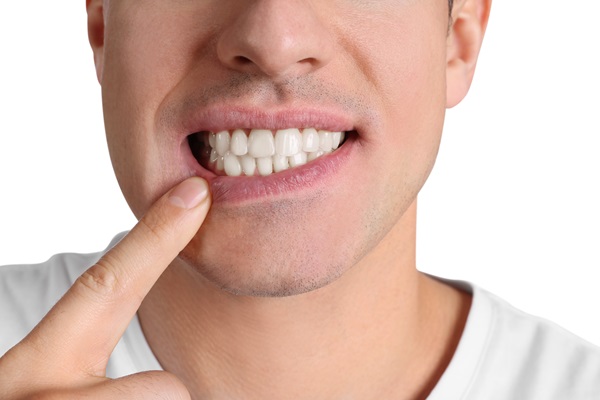When To Visit a Periodontist for Gum Recession

Concerned about gum recession? Read on to learn more. If your smile looks different in the mirror recently, you might want to see a periodontist. You may notice your tooth roots are showing more, your teeth seem longer, or your gums are receding. Perhaps your gums are becoming more tender and your teeth are more sensitive. These are signs of gum recession and indicate the need to see a periodontist.
When to treat gum recession
A periodontist treats gum disease and aims to restore your gum and dental health. Here are four signs that one might need a complete gum assessment from a periodontist:
Hypersensitivity to hot or cold temperatures
Periodontal disease may make teeth more sensitive to hot and cold temperatures because it exposes the teeth's roots as the gums recede. Erosion of enamel can cause increased sensitivity to temperature variations. If the discomfort is always intense when taking hot or cold food or drinks, gum recession or periodontal disease might be the issue. The increased root surface area of the tooth raises the risk of cavities and other dental health problems.
Swollen and sensitive gums
Gums that are infected and receding may be sensitive, inflamed, or red. The bacteria have invaded the gums, triggering the body’s healing response. With many adults suffering from gingivitis, this condition is quite prevalent but can go unnoticed. However, it is a major symptom of gum disease, which causes tooth loss and can worsen overall health.
Longer teeth
If the teeth seem to be getting longer, this may be the gums receding and an early sign of periodontal disease. Bacteria around the gum pockets can damage the tissue surrounding the teeth, causing the gums to recede. Patients may realize their gum line is uneven and less aesthetically pleasing. The teeth may also become more sensitive and painful.
Persistent bad breath
Chronic bad breath and a foul taste in the mouth could be symptoms associated with many bacteria within your mouth — particularly the gums. Failure to brush properly or floss will allow food particles to build up between the gums and teeth. Good oral hygiene habits can remove any debris that accumulates in the mouth after saliva breaks food down for digestion. Otherwise, plaque will quickly develop and cause more odor, as well as harm to the teeth and gums.
Steps to take
These symptoms might indicate the beginning of periodontal disease, a gum infection that damages oral tissues and causes tooth decay and loss. The disease may also cause infection of the jaw bone. Eventually, the gums may recede from the teeth, forming pockets where debris and bacteria can collect. Untreated gum disease is harmful to oral health and even general well-being. Thus, early detection is important in the fight against periodontal disease.
In conclusion
If you have noticed signs of gum recession, you should talk to a periodontist as soon as possible. The experienced dental professional will examine your gums and teeth and recommend the proper procedure to help you keep a healthy smile. They will explain different treatment options so you can make an educated decision regarding your health.
Request an appointment here: https://www.summitperioimplants.com or call Summit Periodontics & Dental Implants at (908) 219-6664 for an appointment in our Summit office.
Check out what others are saying about our dental services on Yelp: Gum Disease in Summit, NJ.
Related Posts
Lip fillers, or dermal fillers, offer more than volume—they can complement dental work and frame the smile with balance and harmony. For patients seeking a polished aesthetic result, this treatment serves as a supportive tool that enhances the overall appearance of the mouth. Periodontists who focus on oral soft tissue health understand how facial features…
Curious about bone grafting? Read on to learn more about this procedure. Periodontal health is a crucial aspect of one's oral health, but gum disease and tooth loss can compromise it and cause jawbone loss. Bone grafts are increasingly used in periodontal treatment as they can rebuild and strengthen the jawbone. The procedure can improve…
Periodontists can diagnose and treat conditions affecting the gums and cheeks. The soft tissues of the mouth are vulnerable to bacterial infection. Understanding how these dental professionals help patients can ease your mind for your next procedure. If you want to know how periodontists can help your gums and cheeks, here are the details.Periodontists concentrate…
Learning more about what Botox® is and how it works to treat problems in dental patients is the first step one needs to take when interested in using this FDA-approved treatment. It is important to understand that dental professionals must first undergo detailed training in order to offer their patients this medical option.Some people may…
